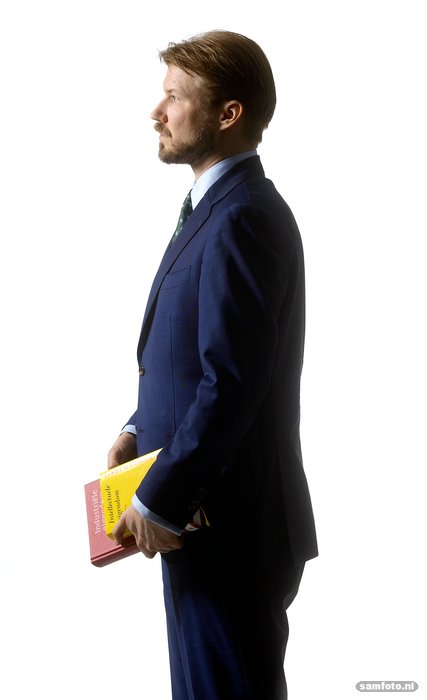View of Adriaan van Noord
Lawyer Adriaan van Noord is Head of IP (Intellectual Property) in the Innovation and Impact Centre. Of all Dutch universities, TU Delft manages by far the most patents, he explains. He also predicts that the role of intellectual property rights will only increase at TU Delft in the decades ahead.
"Don’t expect patents to make TU Delft rich. That’s a misunderstanding. Of course, we try to increase the income from IP. But if you only consider the money, you’re not looking at the process properly. As a university, our core task is to create value from education and research. We aim to use it to create a social impact.
So, how do we do that? If you want companies to do something with TU Delft inventions, you need to use licences to build exclusive rights around them. Publishing inventions without protection is not the best way of ensuring that they are applied. Without protection, companies won’t risk using them. Otherwise, a competitor can get a step ahead by learning from their mistakes and dominate the market.
We also watch out for so-called shelving. Businesses buy up patents purely to obstruct competitors. They produce nothing with them, simply leaving them on the shelf. That’s at odds with our valorisation remit. It may be lucrative, but we apply an anti-shelving strategy. If, after a few years, the company has not done enough with an invention, we allow the licence to lapse and give someone else a chance.
Ultimately, the aim is to guarantee the application of university knowledge in practice. We see IP as a means of ensuring that knowledge reaches society. But we’re not a business; the ultimate aim is not to maximise profit. That means that you take a different approach than in the world of business.
So, what developments do we anticipate in this field? Primarily, we expect IP to become more complex. Computers with AI are emerging that will soon write programs themselves. Software programs written by humans are subject to copyright, but what about programs developed by AI? The emergence of ecosystems around scientific clusters and collaboration with companies like X!Delft will also make agreements about IP more complicated.
It’s crucial to look far ahead. When a TU Delft scientist reports an invention to us, we have to consider whether to apply for a patent, whether the inventor will set up a start-up or whether other companies will be approached to market or further investigate the invention. It’s very important to take the long view.
IP cooperation with companies is also set to increase, as the on-campus presence of Microsoft and Ahold shows. An important ecosystem is developing in which there is cross-fertilisation. Here, companies can learn from the far-sightedness of our top scientists. They benefit from the inventions and collaboration with scientists and students. For the university, that collaboration brings in more resources to fund further research.”
